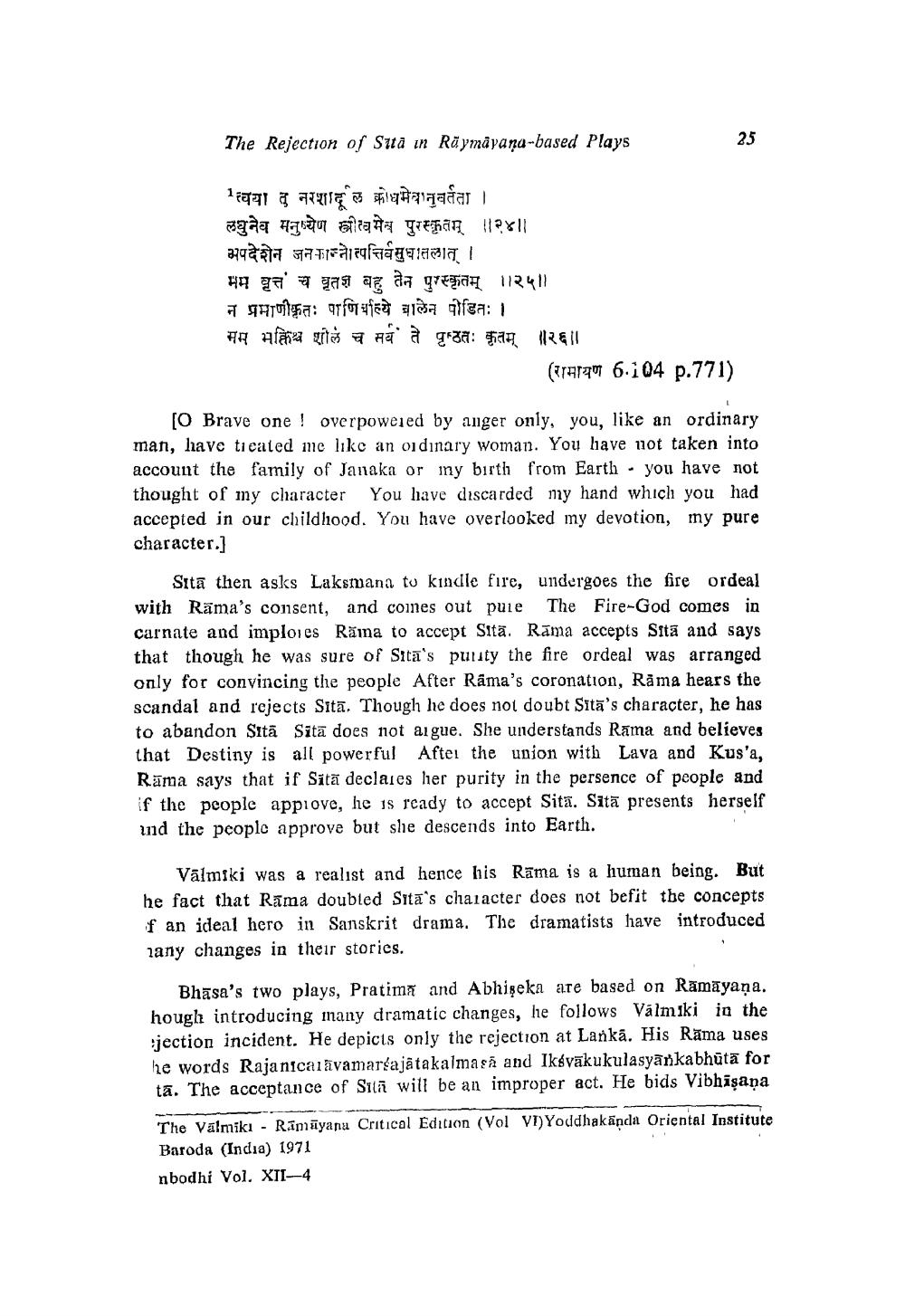________________
The Rejection of Sita in Rāymāyana-based Plays
त्वया तु नरशार्दूल क्रोधमेवानुवर्तता । लघुनेव मनुष्येण स्त्रीत्वमेव पुरस्कृतम् ।।२४।। भपदेशेन जनमान्नोत्पत्तिर्वसुधातलात् । मम वृत्त च वृतज्ञ बह तेन पुरस्कृतम् ॥२५॥ न प्रमाणीकृतः पाणिल्येि बालेन पीडितः । मम भक्तिश्च शीलं च सयंते पृष्ठतः कृतम् ॥२६॥
(trar20 6.104 p.771)
(O Brave one! overpowered by anger only, you, like an ordinary man, have treated me like an ordinary woman. You have not taken into account the family of Janaka or ny birth from Earth - you have not thought of my character You have discarded my hand which you had accepted in our childhood. You have overlooked my devotion, my pure character.]
Sita then asks Laksmana tu kindle fire, undergoes the fire ordeal with Rāma's consent, and comes out puie The Fire-God comes in carnate and implores Rāma to accept Sitā. Rāma accepts Sita and says that though he was sure of Sita's punity the fire ordeal was arranged only for convincing the people After Rama's coronation, Råma hears the scandal and rejects Sitā. Though he does not doubt Sitā's character, he has to abandon $itā Sitā does not a gue. She understands Rama and believes that Destiny is all powerful After the union with Lava and Kus'a, Rāma says that if Sitā declares her purity in the persence of people and if the people approve, he is ready to accept Sitä. Sitā presents herself ind the people approve but she descends into Earth.
Vālmiki was a realist and hence his Rāma is a human being. But he fact that Rama doubled Sita's character does not befit the concepts f an ideal hero in Sanskrit drama. The dramatists have introduced any changes in their stories.
Bhasa's two plays, Pratima and Abhişeka are based on Ramayana. hough introducing many dramatic changes, he follows Válmiki in the
jection incident. He depicts only the rejection at Lanka. His Rāma uses he words Raja nicaiāvamaršajātakalmask and Ikšvākukulasyānkabhūtā for ta. The acceptance of Sulā will be an improper act. He bids Vibhisana The Valmiki - Rāmāyanu Critical Edition (Vol VI) Yoddhakānda Oriental Institute Baroda (India) 1971 nbodhi Vol. XII-4




